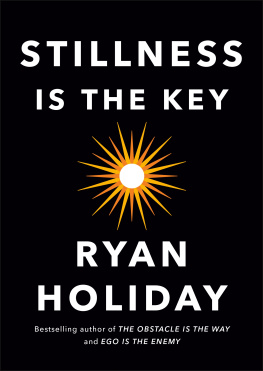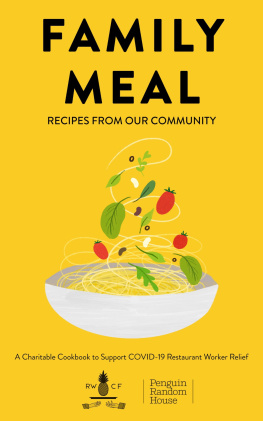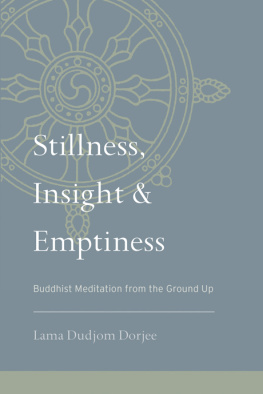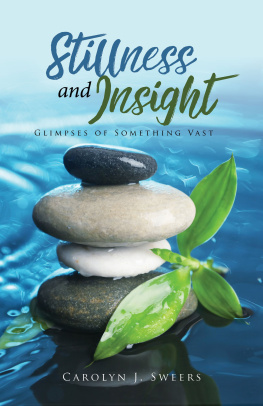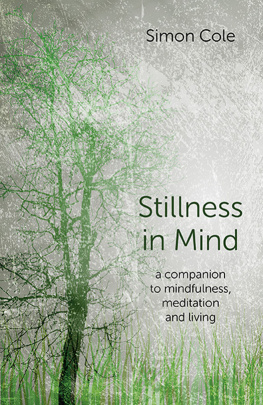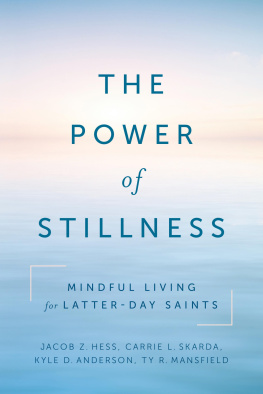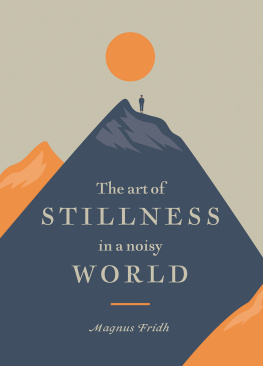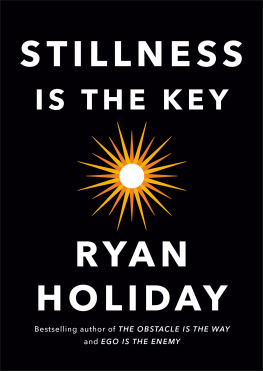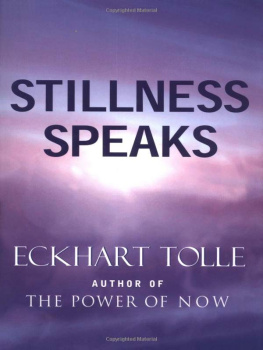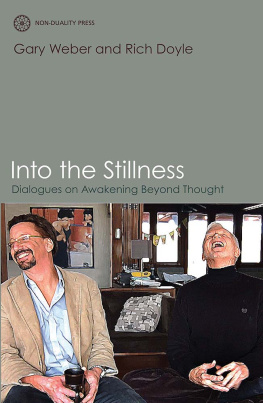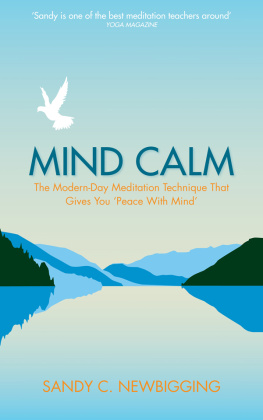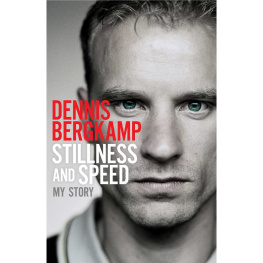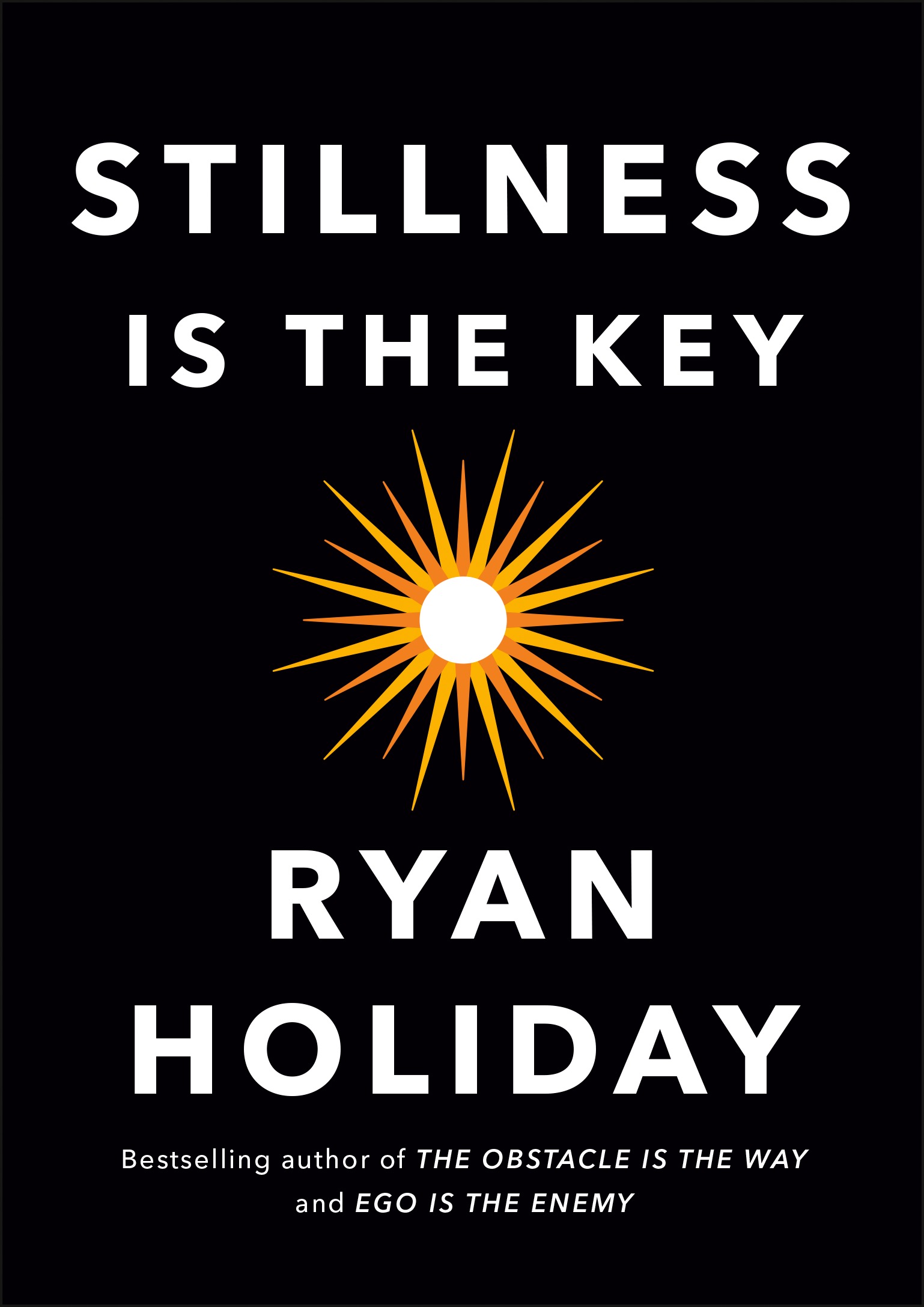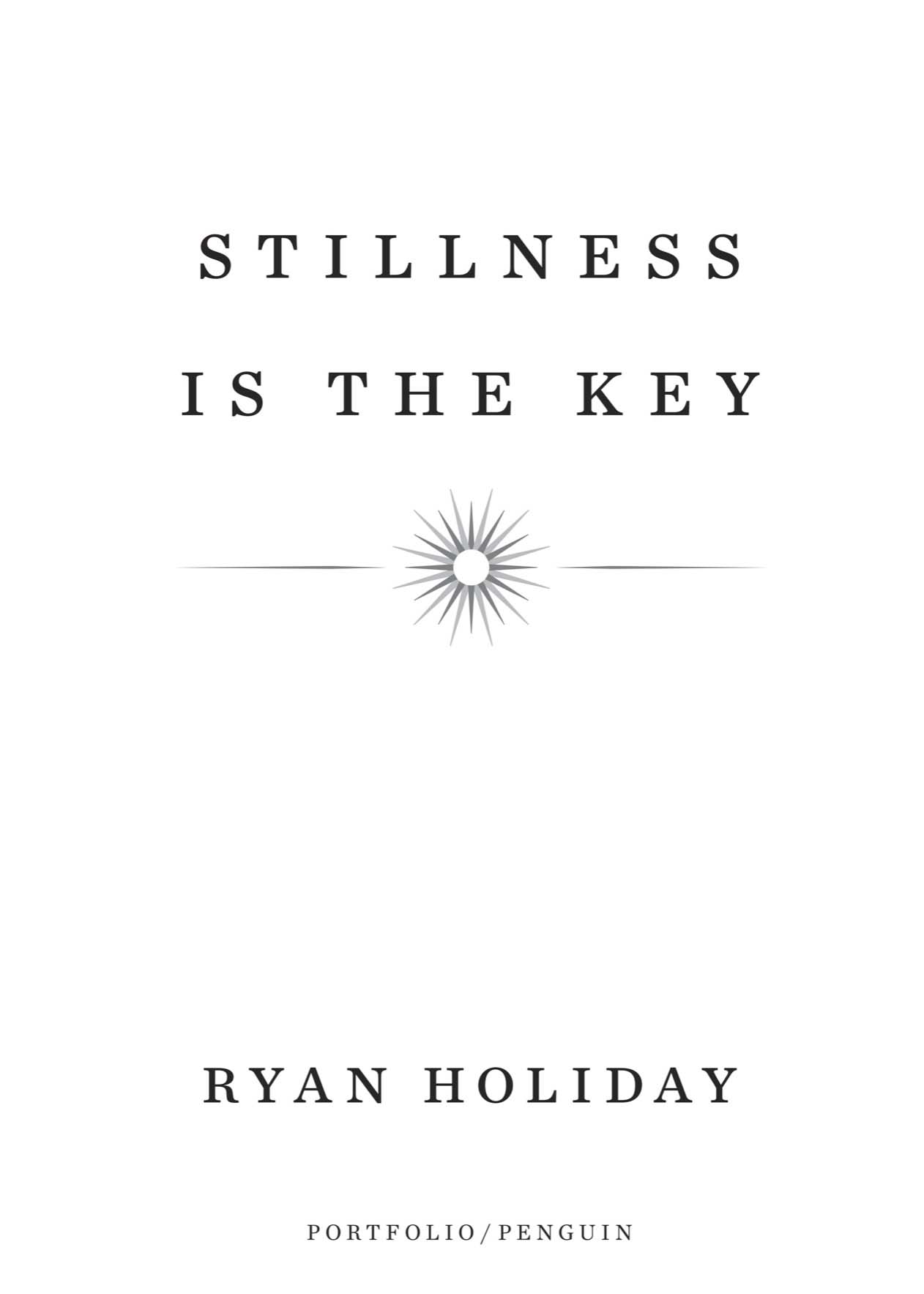Praise for
STILLNESS IS THE KEY
Some authors give advice. Ryan Holiday distills wisdom. This book is a must read.
CAL NEWPORT, NEW YORK TIMES BESTSELLING AUTHOR OF DIGITAL MINIMALISM
Dont be fooled. Within the pages of this unassuming little book lie a life-changing idea: that in order to move forward, we must learn to be still. Ryan Holiday has done it again.
SOPHIA AMORUSO, COFOUNDER AND CEO, GIRLBOSS
In the world today the dangers are manymost notably, the endless distractions and petty battles that make us act without purpose or direction. In this book, through his masterful synthesis of Eastern and Western philosophy, Ryan Holiday teaches us all how to maintain our focus and presence of mind amid the sometimes overwhelming conflicts and troubles of twenty-first-century life.
ROBERT GREENE, NEW YORK TIMES BESTSELLING AUTHOR OF THE 48 LAWS OF POWER
Ryan Holiday is one of the brilliant writers and minds of our time. In Stillness Is the Key he gives us the blueprint to clear our minds, recharge our souls, and reclaim our power.
JON GORDON, BESTSELLING AUTHOR OF THE ENERGY BUS
Ryan Holiday is a national treasure and a master in the field of self-mastery. In his most compelling book yet, he has mined both the classical literature of the ancient world and cultural touchstones from Mister Rogers to Tiger Woods, and brought his learnings to us in terms that the frantic, distracted, overcaffeinated modern mind can understand and put to use. Highly recommended.
STEVEN PRESSFIELD, BESTSELLING AUTHOR OF THE WAR OF ART AND THE ARTISTS JOURNEY
Praise for Ryan Holiday
[Ryan is a] self-help sage, who is now a sought-after guru to NFL coaches, Olympians, hip-hop stars, and Silicon Valley entrepreneurs... [he] translates Stoicism, which had counted emperors and statesmen among its adherents during antiquity, into pithy catchphrases and digestible anecdotes for ambitious, twenty-first-century life hackers.
ALEXANDRA ALTER, NEW YORK TIMES
Holiday is an out-of-the-box thinker who likes to take chances.
NEW YORK TIMES BOOK REVIEW
I dont have many rules in life, but one I never break is: If Ryan Holiday writes a book, I read it as soon as I can get my hands on it.
BRIAN KOPPELMAN, SCREENWRITER AND DIRECTOR, ROUNDERS, OCEANS THIRTEEN, AND BILLIONS
Ryan Holiday is one of the most promising young writers of his generation.
GEORGE RAVELING, HALL OF FAME BASKETBALL COACH, NIKES DIRECTOR OF INTERNATIONAL BASKETBALL

Portfolio/Penguin
An imprint of Penguin Random House LLC
penguinrandomhouse.com
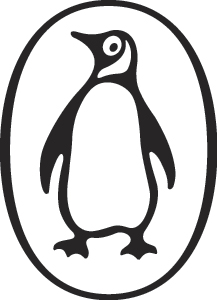
Copyright 2019 by Ryan Holiday
Penguin supports copyright. Copyright fuels creativity, encourages diverse voices, promotes free speech, and creates a vibrant culture. Thank you for buying an authorized edition of this book and for complying with copyright laws by not reproducing, scanning, or distributing any part of it in any form without permission. You are supporting writers and allowing Penguin to continue to publish books for every reader.
Library of Congress Cataloging-in-Publication Data
Names: Holiday, Ryan, author.
Title: Stillness is the key / Ryan Holiday.
Description: New York : Portfolio/Penguin, [2019] | Includes bibliographical references.
Identifiers: LCCN 2019018368 (print) | LCCN 2019021767 (ebook) | ISBN 9780525538592 (ebook) | ISBN 9780525538585 (hardcover)
Subjects: LCSH: Quietude.
Classification: LCC BJ1533.Q5 (ebook) | LCC BJ1533.Q5 H65 2019 (print) | DDC 128/.4dc23
LC record available at https://lccn.loc.gov/2019018368
While the author has made every effort to provide accurate telephone numbers, internet addresses, and other contact information at the time of publication, neither the publisher nor the author assumes any responsibility for errors or for changes that occur after publication. Further, the publisher does not have any control over and does not assume any responsibility for author or third-party websites or their content.
Version_2
The struggle is great, the task divineto gain mastery, freedom, happiness, and tranquility.
EPICTETUS
CONTENTS

PREFACE
It was the late first century AD and Lucius Annaeus Seneca, Romes most influential power broker, its greatest living playwright, and its wisest philosopher, was struggling to work.
The problem was the ear-shattering, soul-rattling noise that poured in from the street below.
Rome had always been a loud citythink New York City construction loudbut the block where Seneca was staying was a deafening cacophony of disturbances. Athletes worked out in the gymnasium underneath his suite of rooms, dropping heavy weights. A masseuse pummeled the backs of old fat men. Swimmers splashed in the water. At the entrance of the building, a pickpocket was being arrested and making a scene. Passing carriages rumbled over the stone streets, while carpenters hammered away in their shops and vendors shouted their wares. Children laughed and played. Dogs barked.
And more than the noise outside his window, there was the simple fact that Senecas life was falling apart. It was crisis upon crisis upon crisis. Overseas unrest threatened his finances. He was getting older and could feel it. He had been pushed out of politics by his enemies, and, now on the outs with Nero, he could easilyat the emperors whimlose his head.
It was not, we can imagine from the perspective of our own busy lives, a great environment for a human to get anything done. Unconducive to thinking, creating, writing, or making good decisions. The noise and distractions of the empire were enough to make me hate my very powers of hearing, Seneca told a friend.
Yet for good reason, this scene has tantalized admirers for centuries. How does a man, besieged by adversity and difficulty, not only not go out of his mind, but actually find the serenity to think clearly and to write incisive, perfectly crafted essays, some in that very room, which would reach millions upon millions and touch on truths that few have ever accessed?
I have toughened my nerves against all that sort of thing, Seneca explained to that same friend about the noise. I force my mind to concentrate, and keep it from straying to things outside itself; all outdoors may be bedlam, provided that there is no disturbance within.
Ah, isnt that what we all crave? What discipline! What focus! To be able to tune out our surroundings, to access ones full capabilities at any time, in any place, despite every difficulty? How wonderful that would be! What wed be able to accomplish! How much happier we would be!
To Seneca and to his fellow adherents of Stoic philosophy, if a person could develop peace within themselvesif they could achieve apatheia, as they called itthen the whole world could be at war, and they could still think well, work well, and be well. You may be sure that you are at peace with yourself, Seneca wrote, when no noise reaches you, when no word shakes you out of yourself, whether it be flattery or a threat, or merely an empty sound buzzing about you with unmeaning sin. In this state, nothing could touch them (not even a deranged emperor), no emotion could disturb them, no threat could interrupt them, and every beat of the present moment would be theirs for living.

